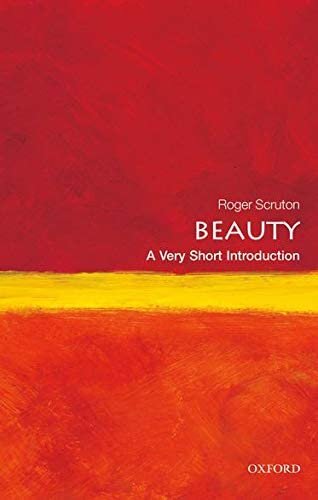Scruton’s humor
Which brings me to Scruton’s sense of humor. As I’ve written before, Scruton’s wry, understated wit is one of his best and most underappreciated traits. He expertly seasons his writing and speaking with it, offering up subtle one-liners to emphasize a point, to give important ideas an intellectual hook to hang on, or simply for comic relief, a generous concession from someone who handles such heavy ideas.
But in the service of critique, his humor could have a razor-blade-and-turpentine bite. Here’s Scruton on the endlessly uncoiling mass of jargon and obscurantist vocabulary typical of leftist theory:
‘[R]eification’ became an important cult word in 1968 in Paris. But the subsequent discussions of the term in the New Left Review added nothing to the rhetoric except pseudo-theory: a morose prowling of the intellect around an inexplicable shrine. The lamest observation, expressed in the language of subject and object, could excite the most solemn respect. Marx’s declaration that ‘the bureaucrat relates himself to the world as a mere object of his activity’ is typical: trite, snobbish and slightly precious in suggesting that one is less an object the more time one spends in the British Museum Reading Room.
Burn.
Here’s another, of Slovenian Marxist philosopher Slavoj Zizek:
If he had stayed in Slovenia, and Slovenia had stayed Communist, Zizek would not have been the nuisance he has since become. Indeed, if there were no greater reason to regret the collapse of Communism in Eastern Europe, the release of Zizek on to the world of Western scholarship would perhaps already be a sufficient one.
The following comes from a passage describing György Lukács’s contention that “the knowledge yielded by the standpoint of the proletariat stands on a higher scientific plane objectively,” an assertion that, with a heaping helping of Foucault, certainly led to the modern obsession not with truth but with who is saying what from what position and with what identity, and the straight-faced assertions that some identities must be believed:
Lukács expands on this idea at considerable length, in prose of supererogatory greyness. But what is he asking us to believe? Apparently the working class, unlike the bourgeoisie, ‘always aspires towards the truth, even in its ‘false’ consciousness, and in its substantive errors’. To understand our situation, therefore, we must see it through proletarian eyes.
Who then should be our authorities—the articulate offspring of the true working class? D.H. Lawrence, Conrad, Céline? Don’t be ridiculous? says Lukács, who devotes many pages to anathematizing such counterrevolutionary lackeys of the bourgeoisie. It seems that proletarian thinking is not to be found in the works of proletarian writers, but only in the Marxist classics. . . . But when did Marx dirty his hands with manual labor? Or Engels, the factory owner, or Lenin, the gentleman in exile? Or Lukács himself—hereditary baron of the Austro-Hungarian Empire, heir to a banker’s fortune, scholar, aesthete and relentless conspirator among the ruling elites? A proletarian thinker? Consider his remedy for reification:
It can be overcome only by constant and constantly renewed efforts to disrupt the reified structure of existence by concretely relating to the concretely manifested contradictions of the total development, by becoming conscious of the immanent meanings of these contradictions for the total development.
Is that an authentic proletarian utterance? Come off it, mate!
That stinger actually made me laugh out loud when I read it. And coming as it does at the tail end of this summary of a tendentious and—as we are now seeing—dangerous set of ideas, flavored throughout with a condemnation of leftists for their (concealed) self-loathing and (obvious) hypocrisy, it really stung.
Apropos of nothing
And that brings me here, to a few passages that don’t at all remind me of anything going on right now.
Naturally, most of the mid- and late-twentieth century Marxists and other assorted leftists Scruton critiques are obsessed with class. Why class?
By seeing society in class terms we are programmed to find antagonism at the heart of all the institutions through which people have attempted to limit it. Nation, law, faith, tradition, sovereignty—these ideas by contrast denote things that unite us. It is in terms of them that we attempt to articulate the fundamental togetherness that mitigates social rivalries, whether of class, status or economic role. Hence it has always been a vital project on the left . . . to show these things are in some way illusory, standing for nothing durable or fundamental in the social order.
For class substitute identity—any form of identity and, as we have seen, if you are unhappy with the selection you can always create your own!—and you have much of today’s impassioned, aggressive non-discourse, Newspeak motivated by resentment and a furious demand that one’s subjective feelings be granted the status of Newtonian law.
Subjectivity is the order of the day. When Pilate asked Jesus “What is truth?” at least he was inquiring. Truth is a matter of virtually no concern now. At least some of this attitude we owe to Richard Rorty. In response to Rorty’s argument for what he called pragmatism, an “intersubjective agreement” as a replacement for “a natural and trans-cultural sort of rationality”—that is, objective truth accessible to reason regardless of one’s background or present context—Scruton writes:
There is no point to the old ideas of objectivity and universal truth; all that matters is the fact that we agree.
But who are we? And what do we agree about? Turn to Rorty’s essays, and you will soon find out. ‘We’ are all feminists, liberals, advocates of today’s radical causes and the open curriculum; ‘we’ do not believe in God, or in any inherited religion; nor do the old ideas of authority, order and self-discipline carry weight for us. ‘We’ make up our minds as to the meaning of texts, by creating through our words the consensus that includes us. There is no constraint on us, beyond the community to which we have chosen to belong. And because there is no objective truth but only our own self-engendered consensus, our position is unassailable from any point of view outside it. Pragmatists not only decide what to think; they protect themselves from whoever doesn’t think the same.
Later:
In place of objectivity we have only ‘inter-subjectivity’—in other words, consensus. Truths, meanings, facts and values are now regarded as negotiable. The curious thing, however, is that this woolly-minded subjectivism goes with a vigorous censorship. Those who put consensus in the place of truth quickly find themselves distinguishing the true from the false consensus. And inevitably the consensus is ‘on the left’. . . .
Thus the ‘we’ of Rorty rigorously excludes all conservatives, traditionalists and reactionaries. Only liberals can belong to it; just as only feminists, radicals, gay activists and anti-authoritarians can take advantage of deconstruction. . . . The inescapable conclusion is that subjectivity, relativity and irrationalism are advocated not in order to let in all opinions, but precisely so as to exclude the opinions of people who believe in old authorities and objective truths. This is the short cut to Gramsci’s new cultural hegemony: not to vindicate the new culture against the old, but to show that there are no grounds for either, so that nothing remains save political commitment.
And, later, more on that spirit of censorship:
And that is why, paradoxically, the postmodern curriculum is so censorious—in just the way that liberalism is censorious. When everything is permitted, it is vital to forbid the forbidder. All serious cultures are founded on the distinctions between right and wrong, true and false, good and bad taste, knowledge and ignorance. It was to the perpetuation of those distinctions that the humanities, in the past, were devoted. Hence the assault on the curriculum, and the attempt to espouse a standard of ‘political correctness’—which means, in effect, a standard of non-exclusion and non-judgement—is also designed to authorize a vehement kind of judgement, against all those authorities that question the orthodoxy of the left.
Unsurprisingly, if there is no objective truth and all that remains is a totalizing political commitment, base feelings will rise to the surface as motivation. Chief among these—manifested in the French Revolution and Marx, the Bolsheviks and the Nazis, the Parisian students of 1968 and the radical activist movements now—is resentment. Scruton addresses resentment thus, which I quote at length:
Resentment is not a good thing to feel, either for its subject or its object. But the business of society is to conduct our social life so that resentment does not occur: to live by mutual aid and fellowship, not so as to be all alike and inoffensively mediocre, but so as to gain others’ cooperation in our small successes. Living in this way we create the channels through which resentment drains away of its own accord: channels like custom, gift, hospitality, shared worship, penitence, forgiveness and the common law, all of which are instantly stopped up when the totalitarians come to power. Resentment is to the body politic what pain is to the body: it is bad to feel it, but good to be capable of feeling it, since without the ability to feel it we will not survive. Hence we should not resent the fact that we resent, but accept it, as a part of the human condition, something to be managed along with all our other joys and afflictions. However, resentment can be transformed into a governing emotion and a social cause, and thereby gain release from the constraints that normally contain it. This happens when resentment loses the specificity of its target, and becomes directed to society as a whole. That, it seems to me, is what happens when left-wing movements take over. In such cases resentment ceases to be a response to another’s unmerited success and becomes instead an existential posture: the posture of the one whom the world has betrayed. Such a person does not seek to negotiate within existing structures, but to gain total power, so as to abolish the structures themselves. He will set himself against all forms of mediation, compromise and debate, and against the legal and moral norms that give a voice to the dissenter and sovereignty to the ordinary person. He will set about destroying the enemy, whom he will conceive in collective terms, as the class, group or race that hitherto controlled the world and which must now in turn be controlled. And all institutions that grant protection to that class or a voice in the political process will be targets for his destructive rage.
That posture is, in my view, the core of a serious social disorder.
Thus far all of this has played out in the academy, where leftism has triumphed in the United States, and in what are broadly called the culture wars. The self-loathing of the university elite and their embrace of subjectivism and resentment-driven radicalism “have ended in America in a near-universal victory for the left. Many of those appointed as the guardians of Western culture will seize any argument, however flawed, and any scholarship, however phony, in order to denigrate their cultural inheritance.” One thinks of the 1619 Project, perhaps the most mendacious journalism to appear in the New York Times since Walter Duranty, an ahistorical, ideologically motivated attempt to create an utterly new conception of American history—Scruton’s description of Newspeak “casting spells” and “conjuring” again—a project that has already borne fruit. Scruton writes:

















